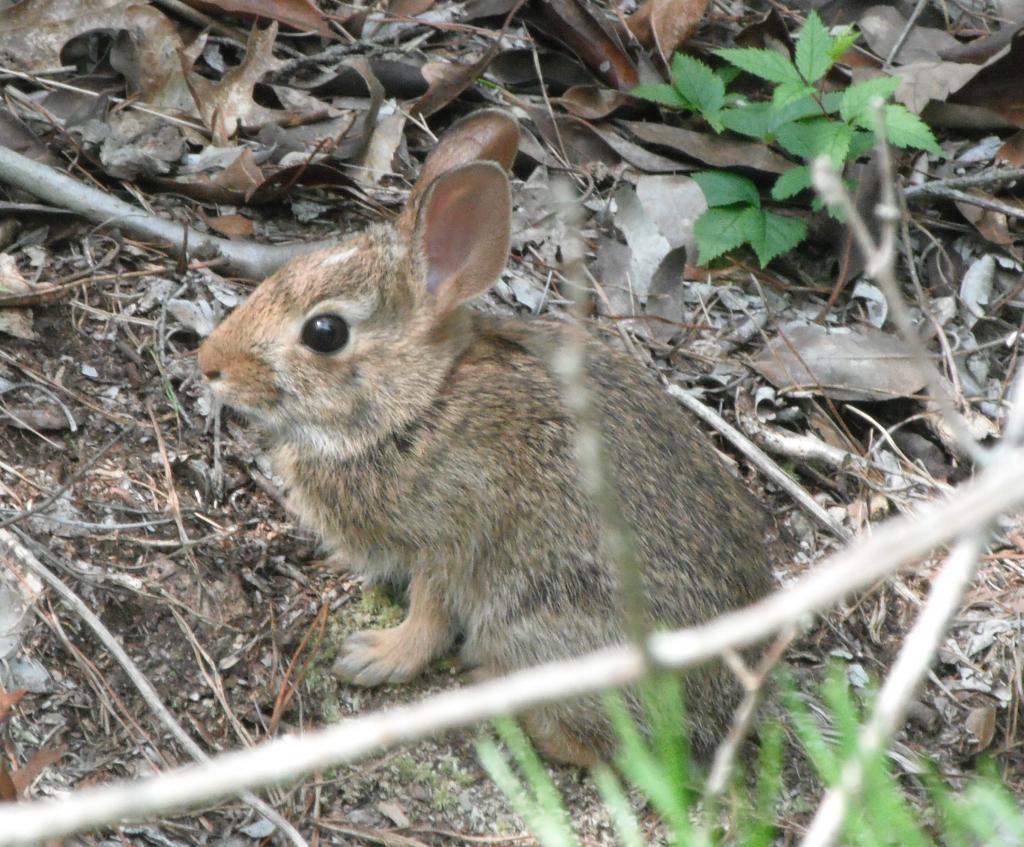|
| Distribution |
In NC, it occurs statewide, certainly present in all counties, from the coast to the middle elevations, at least up to 4,200 feet elevation.
Ranges throughout the eastern United States and extreme southern Canada, west through the Great Plains and south to the Gulf Coast and into Mexico. |
| Abundance |
Abundant across the state, though numbers decrease in the middle and higher elevations, where the very similar Appalachian Cottontail is present. Note that the iNaturalist website contains photos for many more than half of the state's counties, and the editors have not taken the time to update the map with "Photo" records/documentation unless the county had previously no known records (white on the map). |
| Seasonal Occurrence |
Active year-round. |
| Habitat |
Very widespread, but usually near dense herbaceous cover. Favors brushy fields, thickets, clearcuts, and wooded borders, but does occur in forest interiors, as well as in wide open weedy fields, dunes, maritime thickets, and many other places. It favors dry to mesic habitats, as opposed to wet places. It is often seen by the layman in yards, close to cover, usually at twilight.
See also Habitat Account for Forest-Field Ecotones and Groves |
| Behavior |
Primarily nocturnal, but occasionally active by day, mainly at dawn and dusk. As is well known, it is very prolific as a breeder. |
| Comments |
This well-known species is one of the most frequently seen mammals in the state, after only the Eastern Gray Squirrel and perhaps the White-tailed Deer. In wetter habitats, the Marsh Rabbit "replaces" the Eastern Cottontail, as does the Appalachian Cottontail at the higher elevations. |
| Origin |
Native |
| NC List |
Official |
 State Rank State Rank |
S5 |
| State Status |
|
 Global Rank Global Rank |
G5 |
| Federal Status |
|
| subspecies |
Sylvilagus floridanus mallurus |
| other_comName |
|
| synonym |
|



